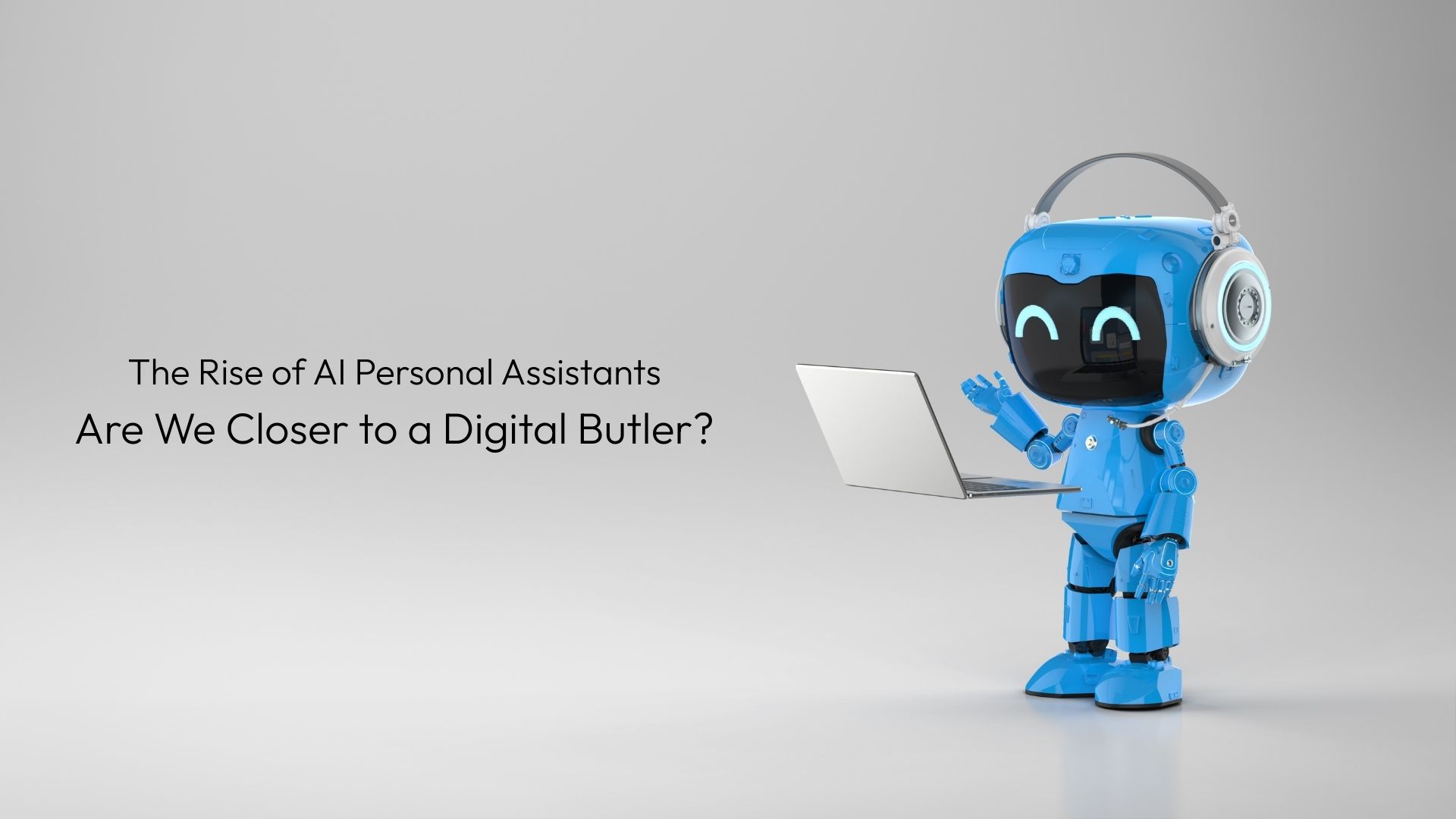Introduction
Artificial Intelligence (AI) personal assistants have evolved far beyond setting reminders and answering simple questions. With natural language processing (NLP), machine learning, and automation advancements, modern AI assistants can manage schedules, control smart homes, and even anticipate user needs.
But are we indeed on the verge of having a fully functional digital butler—an AI that responds to commands and proactively assists in daily life?
Let’s explore AI personal assistants’ rise, capabilities, and the future.
1. The Evolution of AI Assistants
AI assistants have come a long way from the early days of Siri, Google Assistant, and Alexa. The latest AI models are more intelligent, contextual, and capable of handling complex tasks.
Key Milestones in AI Assistant Development:
- 2011: Siri becomes the first mainstream voice assistant.
- 2014: Amazon introduces Alexa, revolutionizing smart home integration.
- 2020s: AI models like ChatGPT and Bard enhance conversational AI.
- 2025: AI assistants are increasingly capable of managing workflows, offering real-time insights, and making autonomous decisions.
Today, AI assistants are more than voice-activated tools—they are integrated into daily life across various platforms and industries.
2. What AI Personal Assistants Can Do Today
AI personal assistants are now multi-functional and adaptive, helping users in ways that were once considered science fiction.
Current Capabilities:
✅ Smart Scheduling – AI assistants can manage calendars, suggest optimal meeting times and even reschedule appointments.
✅ Home Automation – They control smart home devices, from lights to security cameras.
✅ Personalized Recommendations – AI learns user habits to provide better shopping, entertainment, and even health-tracking suggestions.
✅ AI-Driven Task Automation – Automates repetitive tasks like email responses, customer support, and data analysis.
✅ Multimodal Interaction – AI assistants now integrate voice, text, and vision, allowing more intuitive interactions.
With machine learning, these systems continuously improve, becoming more context-aware and predictive.
3. Are We Closer to a Digital Butler?
A proper digital butler would be an AI assistant that can anticipate needs, manage multiple aspects of life autonomously, and provide human-like interactions. While AI assistants are not fully autonomous yet, we’re getting closer.
What’s Still Missing?
- Accurate Emotional Intelligence – AI can analyze tone but lacks genuine emotional understanding.
- Deeper Contextual Awareness – AI assistants struggle with long-term memory and multi-step reasoning.
- Privacy & Ethical Concerns – Users worry about data security, AI bias, and over-reliance on automation.
- Advanced Decision-Making – While AI can provide suggestions, it’s incapable of handling complex human-level decision-making.
Despite these challenges, advancements in AI memory, real-time processing, and personalization are pushing us closer to the digital butler era.
4. The Future of AI Assistants
AI personal assistants will become more proactive, human-like, and deeply integrated into daily life.
Predictions for AI Assistants in the Next 5 Years:
🚀 AI with Memory – Future AI will remember user preferences and past interactions, creating a more personalized experience.
🚀 Advanced Multimodal Interaction – Combining text, voice, video, and real-world object recognition for seamless interactions.
🚀 AI-Powered Task Execution – AI assistants will go beyond reminders, actively managing finances, emails, and even complex work tasks.
🚀 Personalized AI Companions – AI will become more emotionally aware, providing mental health support, companionship, and coaching.
🚀 Hyper-Connected AI Ecosystem – AI assistants will communicate across multiple devices and services, creating a fully automated digital lifestyle.
With companies like OpenAI, Google, and Apple competing to build the most advanced AI, the future of digital butlers is closer than ever.
Conclusion
While AI personal assistants have evolved dramatically, we’re still a few steps away from a proper digital butler that seamlessly manages all aspects of daily life. However, the dream of a fully autonomous digital assistant is within reach with rapid advancements in AI memory, decision-making, and multimodal interaction.
Would you trust an AI butler to run your daily life? The future is coming fast—and AI is ready to assist.

